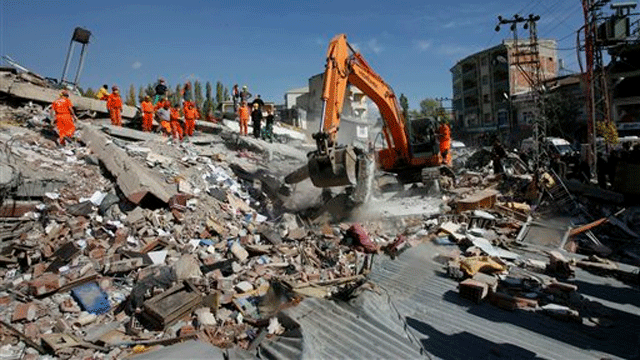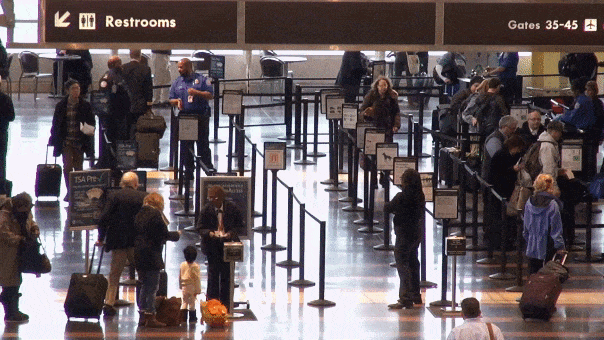
October 24: Emergency crews work to rescue people from the debris and rubble of collapsed buildings in Ercis, eastern Turkey. Dozens of people were trapped in mounds of concrete, twisted steel and construction debris after hundreds of buildings in two cities and mud-brick homes in nearby villages pancaked or partially collapsed in Sunday's 7.2-magnitude earthquake. (AP)
In the last several years, Turkey has become a prime destination for travelers all over the world – and for good reason. It has everything to offer from ancient ruins to architecture and breathtaking beaches.
But with a 7.2 magnitude earthquake striking the country two days ago, many might be wondering if a trip to Turkey is still a good idea.
We checked in with a travel expert to see if the disaster will deter people from traveling to the unique country.
“The region that was hardest hit is not the most-visited place, so it shouldn't affect travelers much at all,” Jason Clampet, a senior online editor at Frommer’s, told FoxNews.com. “Travelers should, though, be aware of what happened and what people are going through. You're likely to interact with someone who either knows or is a relative to someone affected by the earthquake.”
To put that into perspective, the affected region is 1,550 miles from Istanbul. That’s like driving from New York to Dallas. We’re talking about a big distance.
“It’s a 28-hour drive from Istanbul to the epicenter,” an official with the Turkish Culture and Tourism Offices, told FoxNews.com. “People don’t know how big Turkey is. They assume it will affect tourism, but we don’t expect it to at all. The region that was hit is rarely visited by tourists and business travelers.”
At last check, Turkish airlines was running on schedule as well.
Sunday’s earthquake, which killed at least 370 people, shook the eastern part of the country, dealing a devastating blow to the cities of Ercis and Van. The government's response appeared to be well-coordinated because of the country's vast experience in dealing with killer earthquakes and their aftermaths. Hundreds of rescue teams from throughout Turkey rushed to the area, while Turkish Red Crescent dispatched tents and blankets and set up soup kitchens.
Turkey lies in one of the world's most active seismic zones and is crossed by numerous fault lines. In 1999, two earthquakes with a magnitude of more than 7.0 struck northwestern Turkey, killing about 18,000 people.
Istanbul, the country's largest city with more than 12 million people, lies in northwestern Turkey near a major fault line, and experts say tens of thousands could be killed if a major quake struck there.
Clampet recommends people planning to visit Turkey in the days, weeks and months ahead show support for the region by giving back.
“Look to the Turkish Red Crescent (the largest humanitarian organization in the country) and their disaster fund. They’re able to quickly distribute money and resources to people hit the hardest.”
Click here to find out more about the Turkish Red Crescent.
Ironically, Frommer’s released its ‘Top Destinations 2012’ on Tuesday, and the readers’ favorite spot just happened to be Turkey.
“Not many other destinations can compete on so many fronts,” Clampet said. “You can have a totally urban, cosmopolitan experience in Istanbul, then head to a secluded Mediterranean beach where ancient architecture casts shadows on your beach towel. It boasts a really rich religious tradition that especially attractive to Muslims and Christians.”
Editors at the travel guide also attributed the win to Turkey’s “unique positioning at the crossroads of Europe and Asia,” and the strength of the Turkish people.
“Modern Turkey and its past incarnations have seen their share of natural and man-made challenges throughout the centuries,” the editors said in a news release. “There is one undeniable common denominator, and that is that Turkey, and the Turkish people, know how to do hospitality.”
They do it so well, it’s estimated that tourism will earn Turkey $21 billion this year.
The Associated Press contributed to this report.








































